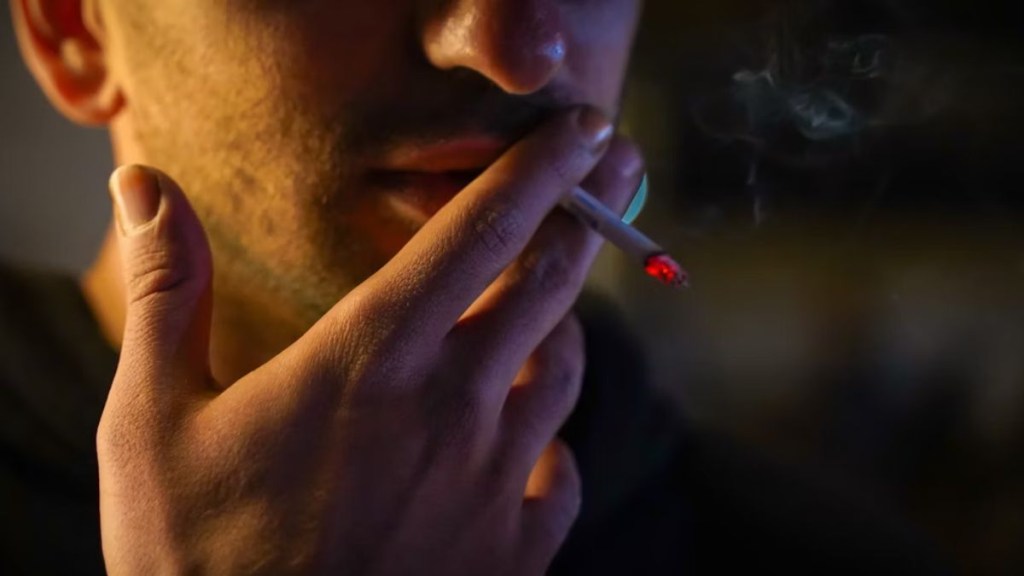For years, we’ve heard about the dangers of smoking for the lungs and heart. But doctors now warn that it could also be silently damaging our spine. Specialists at the North Eastern Indira Gandhi Regional Institute of Health and Medical Sciences (NEIGRIHMS) in Shillong have raised concerns that smoking significantly increases the risk of a slipped disc, a painful spinal condition also known as lumbar disc herniation.
The warning came after doctors at NEIGRIHMS successfully performed a surgery on a patient who had been struggling with recurrent lumbar disc herniation. The operation, a minimally invasive procedure called tubular microdiscectomy, was led by surgeon Dr Bhaskar Borgohain, who removed four large fragments of the disc pressing on the S1 nerve root.
Speaking to PTI, Dr Borgohain explained why smokers should take this risk seriously. “Research suggests that smoking is one of the risk factors for slipped discs, possibly due to damage to collagen fibres in the disc’s outer ring caused by toxic hydrocarbons in cigarette smoke,” he told PTI. He added that smoking weakens the spinal discs, making them more prone to rupture, particularly in the lower back.
To understand the risks better, we spoke with Dr Raju Vaishya, Senior Consultant, Orthopaedic and Joint Replacement Surgery, Indraprastha Apollo Hospitals, who explains the connection between smoking and spine health.
Why smoking harms the spine
“Smoking damages the spinal discs in multiple ways,” explained Dr Vaishya. “The toxic compounds in cigarette smoke, especially nicotine, reduce blood flow to the discs. This limits the supply of oxygen and nutrients they need to stay healthy. At the same time, chemicals in smoke damage the collagen fibres that give discs their structure. Over time, these discs become dry, stiff, and weak, making them more likely to rupture or herniate.”
He added that smokers are also more likely to suffer recurrent problems even after surgery. On top of this, chronic coughing caused by smoking can put extra pressure on the spine, further increasing the risk of disc issues.
Symptoms you shouldn’t ignore
A slipped disc doesn’t always announce itself right away. Dr Vaishya said the warning signs can range from mild to severe:
- Sharp or burning pain in the lower back, often radiating to the legs (sciatica).
- Numbness or tingling in the thighs, legs, or feet.
- Muscle weakness, which can make it hard to walk or even lift your foot (known as “foot drop”).
- Pain that worsens when sitting for long periods.
- In severe cases, loss of reflexes or difficulty controlling movement.
“If someone experiences severe leg pain, progressive weakness, or sudden numbness, they should seek medical attention immediately,” he explains.
Can quitting smoking help and make a difference?
The good news is that quitting smoking can make a real difference. “Stopping smoking improves blood flow and slows down the wear-and-tear changes in the discs,” said Dr Vaishya. “It enhances healing, reduces inflammation, and improves the outcomes of spinal treatments and surgeries. Former smokers often report less back pain and recover better compared to those who continue smoking,” he said.
How does surgery help?
For patients who already have a slipped disc causing severe pain, surgery may be needed. Dr Borgohain’s team at NEIGRIHMS performed a tubular microdiscectomy, a modern, minimally invasive procedure that removes the herniated part of the disc while protecting the surrounding muscles and tissues.
Dr Vaishya explains that “Instead of cutting through the back muscles, the surgeon gently separates them using a tubular retractor. With the help of a microscope or endoscope, they remove only the portion of the disc that’s pressing on the nerve. This results in less pain, quicker recovery, and shorter hospital stays compared to traditional surgery.” Most patients are able to return to normal activities much sooner.
If you smoke, now may be the time to quit, not just for your lungs or heart, but for your spine as well.







